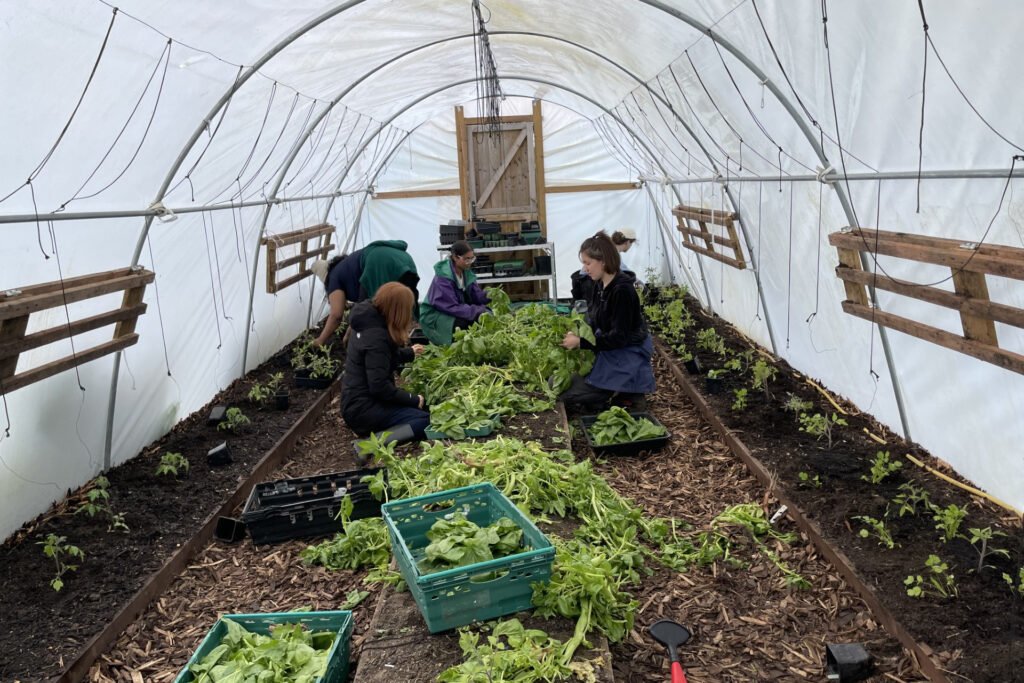The Community Oasis Garden at the University of Kent’s Canterbury campus is expanding to meet the growing demand from students seeking a peaceful place to support their mental health. This special garden offers students a quiet outdoor space where they can relax, connect with others, and take part in nature-based activities designed to reduce stress and promote calmness.
The garden is part of the university’s wider effort to improve student well-being. It encourages students to take breaks from screen time and enjoy working outdoors. Within the garden, students plant flowers, build bug hotels, create small ponds, and help local wildlife thrive. These simple tasks provide therapeutic benefits, giving students a hands-on way to cope with stress through gentle activity and connection with nature.
Students access the Community Oasis Garden through the university’s support services or East Kent Mind, a mental health charity involved in running the project. The garden’s program aims to help students feel better by being active, spending time outside, and joining a supportive group. While gardening may seem like a simple activity, many students find it a powerful way to manage mental health challenges.
Lewis Sawyer, a PhD student, first joined the garden project as an undergraduate after a referral from the university’s support services. He described how the garden helped him step away from the pressures of academic life. For many students, long hours indoors, working at desks and staring at screens, can feel overwhelming. Lewis explained that spending time in the garden gave him space to breathe and reconnect with nature, which eased his stress.
This year, the garden team has worked hard to expand the space. They cleared overgrown land, created new planting beds, and added features like ponds and homes for insects to boost biodiversity. Local volunteers join students regularly to grow vegetables and flowers. These shared activities help build a sense of teamwork and community. Due to the garden’s success, plans are underway to add a new building and extra green space to accommodate more students.
Garden ambassador Elinor Casey describes the Community Oasis Garden as a calm and welcoming place. She noted that students continually work to improve and grow the garden. For many, the garden offers a simple way to pause during stressful times and find peace of mind. Elinor called the garden “a place for well-being” that helps make university life easier to manage.
The expansion of the Community Oasis Garden comes at a time when mental health in higher education is under close review. The Department for Education has recently asked universities to review how easy it is for students to access mental health support. This follows growing concerns about student mental health and reports of student suicide. Campaigners have also urged universities to take on a stronger legal duty of care for students.
The University of Kent is responding by investing in new ways to help students cope. In addition to mental health advisers and trained counsellors, the university is now offering outdoor activities like those in the Community Oasis Garden. Deputy director of student services Lee Fellowes highlighted that many young people today face mental health struggles, and that health services are often stretched. He stressed the importance of universities stepping up to provide practical support in natural settings.
For students like Gabriel Scannicchio, a master’s student from Italy, the garden has been a source of comfort and confidence. Gabriel said joining the garden helped him feel part of a group and eased social anxiety. Spending time with volunteers gave him a sense of belonging and support during his studies abroad.
The Community Oasis Garden is more than just a green space on campus. It is a place of healing, care, and connection where students can find relief from stress and improve their mental health. As it grows, the garden stands as a clear example of the University of Kent’s strong commitment to supporting student well-being through innovative and nature-based solutions.







